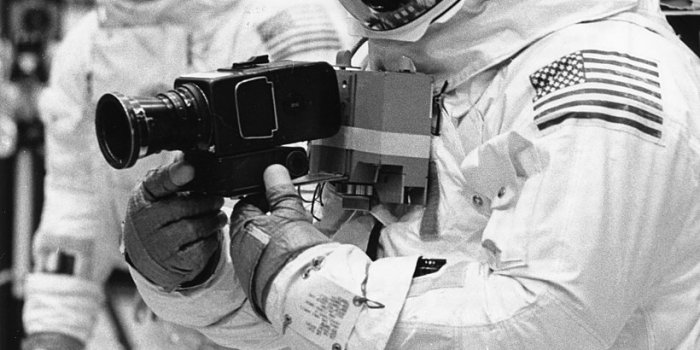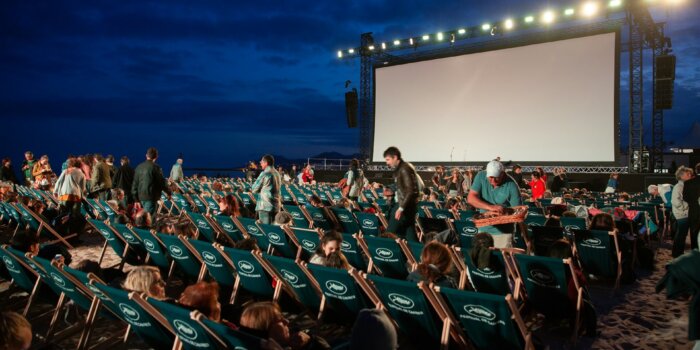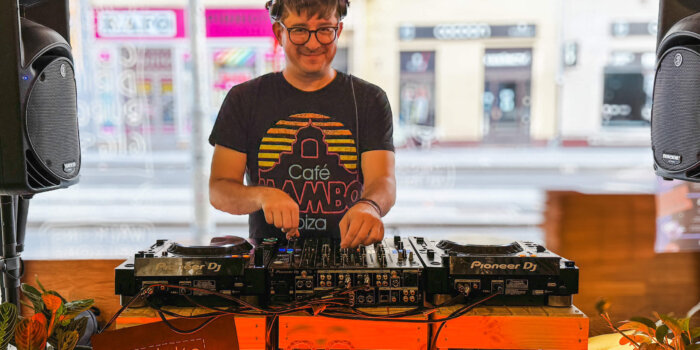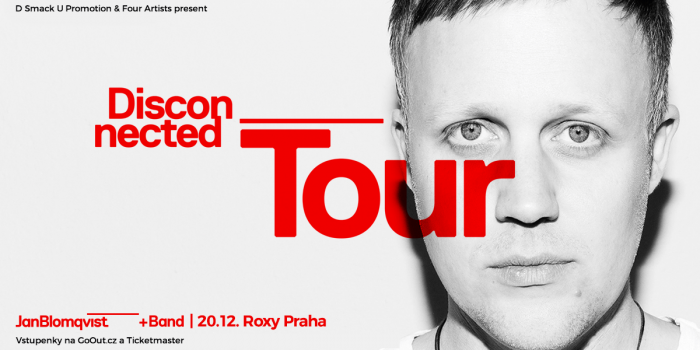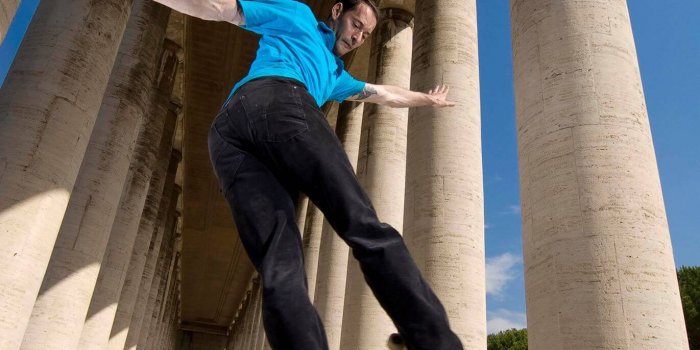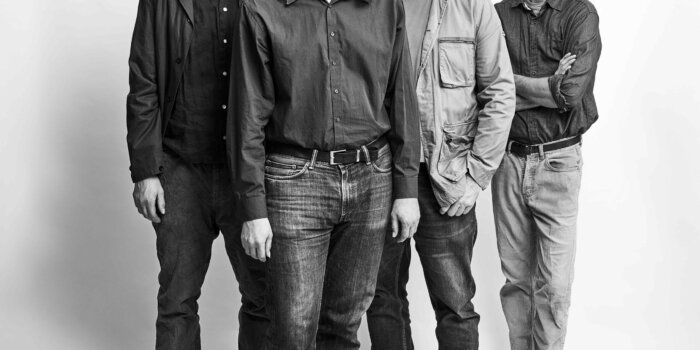Interview: Bongo Joe
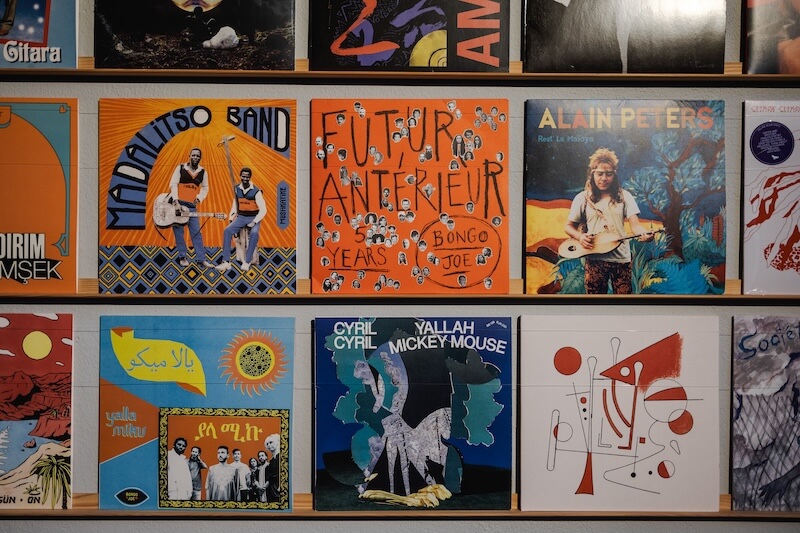
Bongo Joe is an independent record label and shop based in Geneva, Switzerland. Known for its adventurous taste, the label focuses on eclectic music from around the world — from reissues of forgotten gems to bold new releases that defy genre. Since 2015, Bongo Joe has grown from a local record store into a respected platform that supports artists, tells sonic stories, and connects the dots between past and present.
They now celebrate 10 years and I thought it would be nice to interview them.

What were the original intentions behind founding Bongo Joe, and how have they shifted (or not) over time?
Bongo Joe started as a record shop and a gathering point in Geneva, back in 2015. At the beginning, there was no grand masterplan — just the desire to share records we loved, especially the ones that didn’t fit neatly into categories. We were driven by curiosity, passion, and a love for music that told stories: of places, of scenes, of forgotten or overlooked voices.
Over time, we became a label, then a platform, then a family — but the core idea hasn’t really changed. We still move instinctively, but with care. We follow our ears, our encounters, and our community. If anything has shifted, it’s that we’ve learned to embrace the contradictions: between archival and contemporary, between experimental and popular, between local and global.
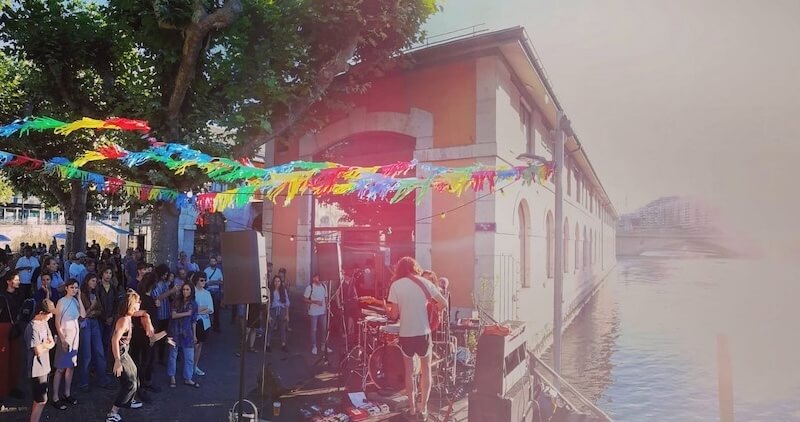
What was and is the musical terrain in Geneva like?
Geneva is a strange beast. On the surface, it’s calm, clean, bureaucratic. But underneath, there’s a rich undercurrent of culture — shaped by migration, struggle, and a constant back-and-forth between center and periphery. Musically, it’s always been a crossroads. From free jazz to punk, from Caribbean soundsystems to industrial techno, there’s an edge here that people often underestimate.
When we started Bongo Joe, we didn’t want to impose a “sound of Geneva.” We wanted to reflect its multiplicity. And today, that’s still the case. Our scene is fragmented but fertile — and full of people doing things on their own terms.
What’s changed most about running a label and a shop since Bongo Joe began, and how have you adapted?
A lot has changed — especially with how people listen to music, buy records (or don’t), and find meaning in physical spaces. We’ve had to navigate the vinyl bubble, the streaming era, and now the weird hybrid moment where algorithms coexist with local ecosystems.
The biggest challenge has been staying true to what we believe in while remaining financially sustainable. That means doing many things ourselves: distribution, publishing, management, events. But it also means leaning on collaborations and building long-term relationships — with artists, partners, and audiences. It’s about balance, resilience, and a bit of madness too.
Do you visit other records shops when you travel? Which are your favourites, what do you like about them?
Of course. Record shops are like local weather reports — you feel the atmosphere of a place when you enter. We love places that feel alive, not just curated. Shops where the staff actually listens to what they sell, where flyers are messy, and conversations last too long.
Some favourites: Dizonord (Paris), Red Light Records (Amsterdam), Disco Paradiso (Barcelona), Gimba Records (Seoul), Groove City (Hamburg) and La Roma in Bogotà and Mexico City — plus too many to name. We’ve always been nourished by these spaces.

I love the photos of the interior of your shop. How did you create it, how has it changed, what are you most proud of?
It started as a small, improvised place — with recycled furniture, second-hand speakers, and DIY everything. Then we moved in another place, on the otherside of town. There we had to level up everything hahaha We’re proud that it feels open. Not elitist, not sterile. People come in to dig, to ask questions, to meet. It’s not just about selling records — it’s about making space for stories, and for people.
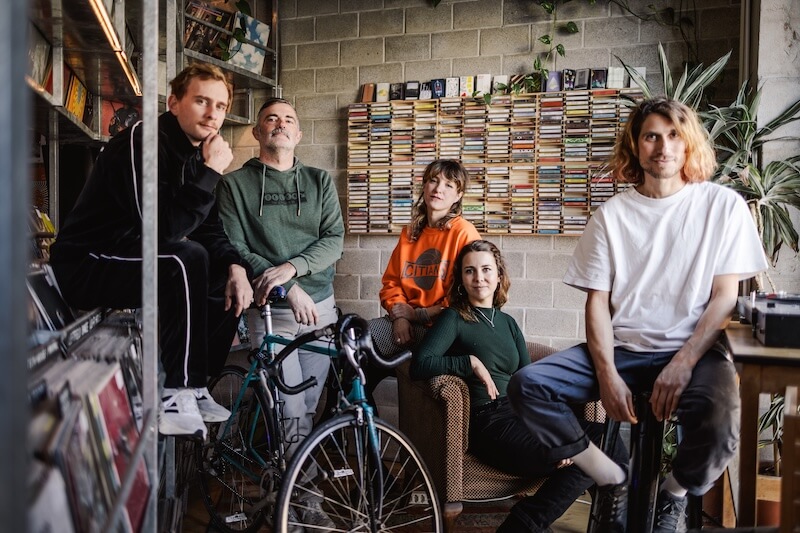
How do you decide what fits within the Bongo Joe realm musically, what is the process of crafting a release?
We don’t believe in genre boundaries or fixed aesthetics. The Bongo Joe “realm” isn’t a sound — it’s a way of listening. What connects our releases is a certain tension: between tradition and invention, between local roots and global echoes, between rigour and spontaneity.
We’re drawn to music that carries a story — sometimes deeply personal, sometimes historical, sometimes political — but always necessary. It can be raw or polished, electronic or acoustic, archival or brand new. What matters is the urgency, the singularity, and the ability to shift perception.
The process of crafting a release starts with a connection — often human before musical. Then it becomes a dialogue: about how to frame the project, how to present it with care, how to avoid the traps of exoticism or tokenism, how to stay honest. There’s no “house style,” but there is a deep sense of responsibility in how we choose, shape and share music.
What do your relationships with artists look like? I believe it might go beyond just distribution?
Definitely. We’re not just a label — we also do management, publishing, booking help, and often just general life support. Some artists stay for one record. Others become family. What matters is trust and respect.
We want artists to feel empowered, not owned. We try to build frameworks that allow them to grow — whether that’s putting them on tour, helping with grant writing, or just being there when shit hits the fan.

Bongo Joe – obchod
And what is beyond your reissues?
For us, reissues are never about nostalgia. They’re about reactivating — about making space for stories that were overlooked, marginalised, or erased. In that sense, every reissue is a political gesture. We don’t treat these records like museum pieces, but as living fragments that still speak to the present — socially, musically, emotionally.
We’re not a reissue label. We’re a label that believes in context, in transmission, in tension. That means releasing new music just as much as digging into the past — especially when the past helps us understand the now. Our compilations are not about curating exotica — they’re about reclaiming sonic histories, and refusing the centre-periphery binary.
What lies beyond our reissues is exactly that: not a move away from them, but a commitment to keep asking why we choose to reissue something — and who gets to be heard.
How about your events?
Events are vital. We organize regular parties, listening sessions, label nights, and showcases — from Geneva to the world. It’s how we test ideas, bring people together, and make the music breathe.
We also like building bridges: between DJs and live bands, between academic and dancefloor, between the underground and the overlooked. Our 10-year anniversary this year is a good excuse to go even further.
What recent sound, artist, or cultural shift has grabbed your attention?
There’s a lot. The return of political punk energy. The rise of diasporic club music (again). The ways younger artists remix their heritage without falling into cliché. And honestly, the persistence of DIY scenes, despite everything.
We’re especially interested in hybrid languages: reggaeton with post-punk, dub with synth wave, baile funk with Maghreb breaks. Anything that challenges the map.
What are Bongo Joe plans now?
We just turned 10 — but it doesn’t feel like a conclusion. More like a checkpoint. We’re reissuing some cult records, launching new ones, helping more artists build sustainable careers, and dreaming of new compilations and collaborations.
We’re also expanding our management branch, and thinking more and more about what it means to run a label in times of uncertainty. No clear answers — just a compass, some records, and a lot of ideas.





